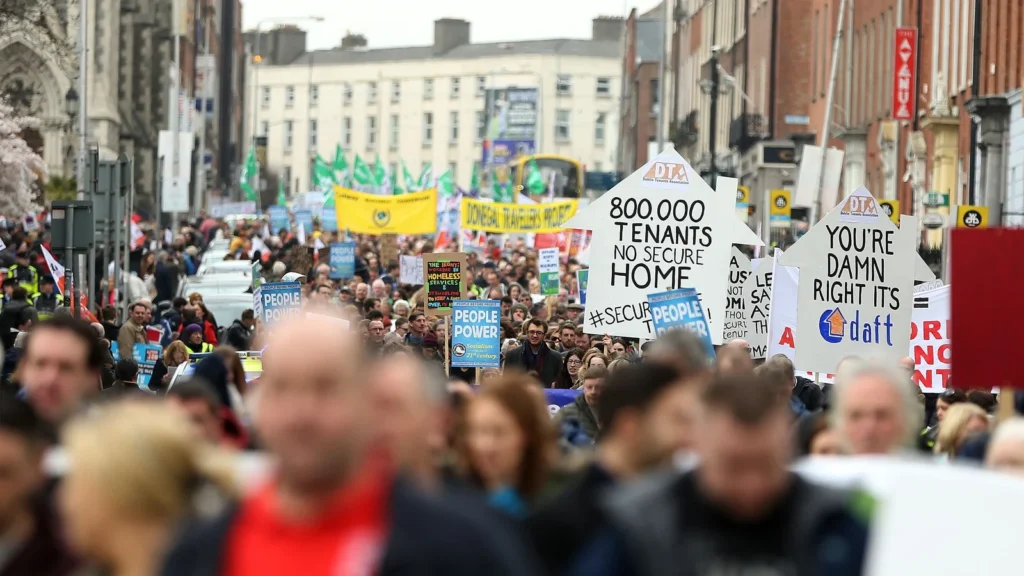
The UK is facing a severe housing crisis that has been building for decades, and many argue that this is largely the result of poor decisions by successive UK governments. House prices are skyrocketing, rental costs are becoming unaffordable, and homelessness is on the rise. How did we get here, and what can be done to reverse the damage?
Historical Roots of the Crisis
The UK’s housing problems are not new. For much of the 20th century, local authorities built vast numbers of homes, particularly council housing, to meet demand and keep prices affordable. However, the introduction of Right to Buy policies under the Thatcher government in the 1980s fundamentally changed the dynamics of the housing market. The scheme allowed tenants of council houses to purchase their homes at discounted rates, which may have seemed like an opportunity for social mobility. But there was a significant catch: local councils were prohibited from using the proceeds from the sales to build new homes. This drastically reduced the stock of affordable housing over time .
The shift to privatisation of the housing market was compounded by a failure to build enough new homes in the following decades. Planning restrictions, local opposition to development (known as NIMBYism – “Not In My Back Yard”), and the rising cost of land have made new construction slow and expensive. All of this led to a significant supply-demand imbalance, with too many people chasing too few homes, driving prices up at an unsustainable rate .
Government Policies That Exacerbated the Crisis
- Failure to Build Affordable Homes: Successive governments have pledged to build more homes, yet actual construction has consistently fallen short of targets . While there have been efforts to boost the housing supply through various schemes like Help to Buy or affordable housing quotas for new developments, they have done little to truly address the crisis. Private developers tend to prioritize high-profit luxury apartments over affordable housing because they are more lucrative, and the government has failed to enforce stricter quotas on affordable housing .
- Buy-to-Let Boom and Deregulation: During the 1990s and 2000s, the UK saw an explosion in the buy-to-let market, where individuals purchased homes as investments rather than places to live . The deregulation of the private rental sector made it easier for landlords to expand their portfolios, often pricing first-time buyers out of the market. Furthermore, tax breaks for buy-to-let investors and a lack of proper tenant protections have meant that many renters find themselves paying high rents for substandard housing with little recourse .
- Lack of Local Authority Investment: Another major issue is the chronic underfunding of local authorities, which are responsible for housing. Years of austerity measures have left councils unable to build enough new homes or properly maintain existing social housing . As a result, many local authorities have been forced to sell off valuable land and properties to private developers, exacerbating the shortage of affordable housing .
- Relaxation of Planning Laws: Recent government policies to relax planning laws in an attempt to “cut red tape” have often backfired . While the intention was to make it easier to build new homes, in reality, this has often resulted in poor-quality developments, with some new builds being criticized for being too small, poorly designed, and unfit for purpose . The focus on quantity over quality has contributed to a growing dissatisfaction with the housing sector.
The Social Impact of the Crisis
The housing crisis has profound social and economic consequences. Homeownership is increasingly out of reach for young people, leading to a generation of long-term renters with little hope of ever getting on the property ladder . The private rental sector is also fraught with issues: rising rents, poor conditions, and insecure tenancies are common complaints. Homelessness, both visible and hidden (those “sofa-surfing” or living in temporary accommodations), has surged as a result of this toxic combination of high house prices and unaffordable rents .
Additionally, the housing crisis is exacerbating inequality. Those who own homes, particularly in areas where prices have risen rapidly, are becoming wealthier, while those who rent or are unable to buy are left behind . This deepening inequality has significant implications for social cohesion and long-term economic stability .
How Can the Housing Crisis Be Improved?
- Mass Building of Affordable Housing: The most straightforward solution to the housing crisis is to increase the supply of affordable homes. The government needs to invest directly in building social housing, which has been neglected for decades. This should include removing restrictions on local authorities and housing associations, allowing them to build more homes at genuinely affordable rates .
- Stronger Regulation of the Private Rental Sector: The government should introduce stronger tenant protections, such as rent controls, minimum standards for housing quality, and longer-term security of tenure. In countries like Germany and the Netherlands, tenants have far greater protections, and rent controls help prevent exploitation by landlords .
- Planning Reform and Sustainable Development: While planning laws need reform, the focus should be on encouraging high-quality, sustainable developments. New housing should meet modern environmental standards, provide adequate space, and integrate with local communities . Incentives should be provided to developers who prioritize affordable housing, and penalties should be introduced for those who fail to meet social housing quotas .
- Addressing Land Banking and Speculation: Large developers often sit on land (land banking) without building on it, waiting for its value to increase. This practice should be discouraged through taxes or other penalties . Additionally, measures could be introduced to reduce housing speculation, ensuring that homes are built to live in, not simply as investment vehicles .
- Community-Led Housing: Encouraging community-led housing projects, such as co-housing or community land trusts, can help create more sustainable, affordable housing. These models empower local communities to take control of housing development, ensuring that homes are built to meet local needs rather than maximize profit for developers .
How Can This Be Prevented in the Future?
Preventing future housing crises will require long-term strategic thinking. Governments must prioritize housing as a fundamental human right and not as an investment vehicle. This means committing to long-term housing plans that transcend short-term political cycles, creating policies that prioritize affordability, sustainability, and social equality .
Additionally, there needs to be a cultural shift in how housing is perceived. While homeownership is seen as a symbol of success in the UK, it’s crucial to develop a more balanced approach that also values secure, long-term renting and alternative models of housing provision .
Conclusion: Can the UK Fix Its Housing Crisis?
The UK housing crisis is complex, but at its heart is a failure of governance, exacerbated by policies that have prioritized market-driven solutions over social needs. Governments have consistently missed opportunities to invest in affordable housing, regulate the private sector, and plan for the future.
The question remains: will Keir Starmer have the political will to make the bold changes required to fix the housing crisis, or will he continue to rely on ineffective, short-term solutions? If lessons are not learned from the past, the housing crisis will only deepen, further entrenching inequality and social discontent across the country. The time for action is now—before the situation becomes truly irreparable.
Citations:
- : BBC News – Housing policy under Thatcher and its long-term effects.
- : The Guardian – Analysis of planning restrictions and NIMBYism.
- : Financial Times – Housing supply issues and land costs in the UK.
- : The Independent – Review of failed housing targets.
- : BBC News – Affordable housing shortfall in new developments.
- : The Telegraph – The rise of the buy-to-let market.
- : Shelter – Issues with the private rental sector and deregulation.
- : The Guardian – The effects of austerity on local councils’ housing budgets.
- : Financial Times – Selling of council assets to private developers.
- : BBC News – Government’s relaxation of planning laws.
- : The Times – Poor-quality housing developments.
- : The Independent – Generation Rent and long-term renting issues.
- : Shelter – The rise of homelessness and hidden homelessness.
- : Financial Times – Housing crisis and growing inequality.
- : The Guardian – Social implications of the housing crisis.
- : Shelter – Calls for more social housing investment.
- : The Economist – International comparisons of tenant protections.
- : The Guardian – Planning reform and sustainable housing.
- : Financial Times – Housing quotas and developer penalties.
- : BBC News – Land banking and the housing market.
- : The Independent – Speculation in the housing market.
- : The Guardian – Community-led housing models.
- : Shelter – Long-term housing policy solutions.
- : BBC News – The need for a cultural shift in housing perceptions.
















